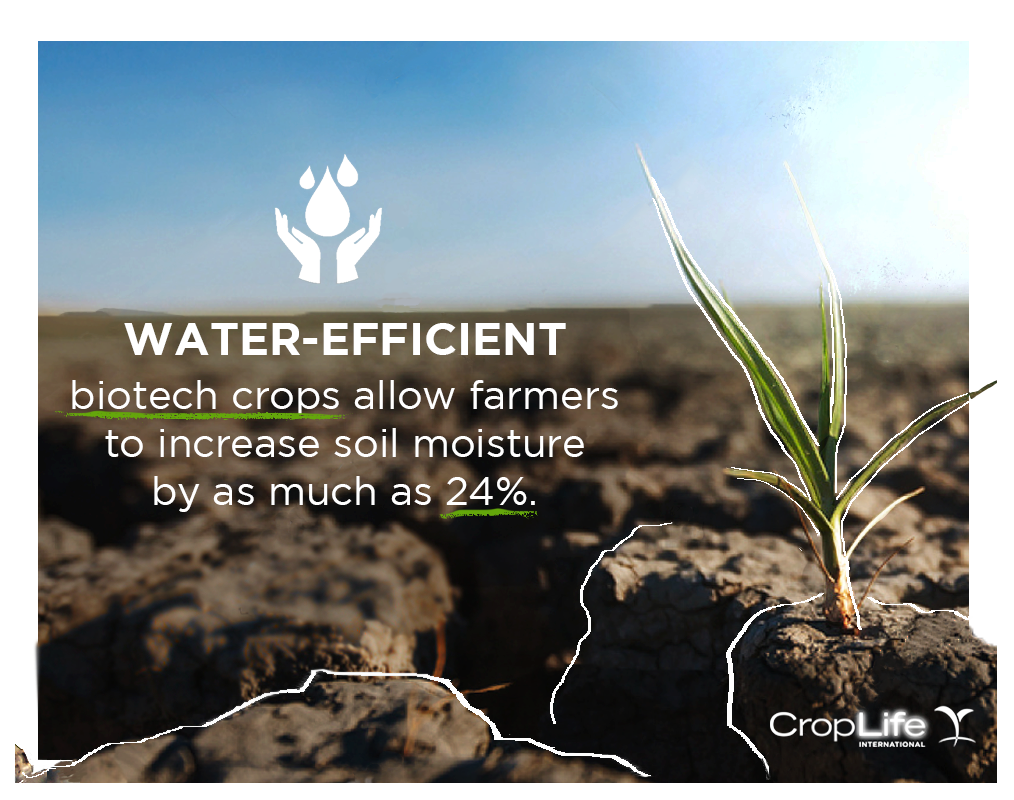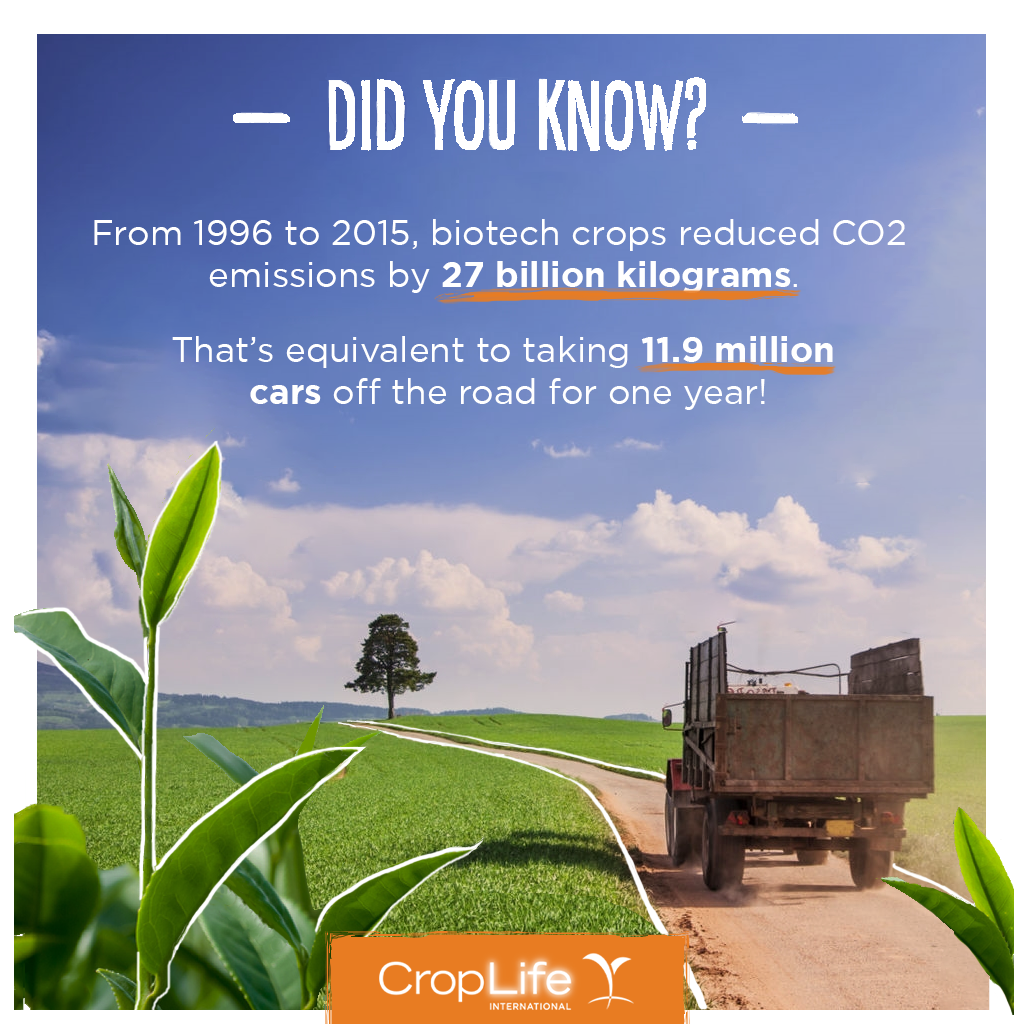By: CropLife International

Up to 50,000 square kilometers of soil is lost every year to soil erosion so plant scientists are working hard to stop it. In Canada, for example, farmers who planted herbicide-tolerant canola without tillage reduced soil erosion by 86 percent.
Herbicide-tolerant biotech crops enable farmers to use herbicides instead of tillage (turning over soil) for weed control. This leaves crop stubble in the field, which improves habitat and food sources for insects, birds and other animals.
The Food and Agriculture Organization of the United Nations estimates that around 1 billion people in dry regions may face increasing water scarcity in the near future. To address this challenge, plant scientists have developed biotech crops with drought-tolerant and water use efficiency traits. Moreover, with no-till farming, thanks to herbicide-tolerant systems, farmers can increase soil moisture by as much as 24 percent.
Biotechnology and crop protection products allow farmers to grow more food on existing farmland . Between 1996 and 2015, biotechnology alone was responsible for additional global production of 574 million tonnes of crops, predominantly soybeans, maize, cotton and canola. As a result, 174 million hectares of farmland expansion was prevented.
Herbicide-tolerant crops allow for no-till farming which leaves soil undisturbed and carbon in the ground. With the use of such biotech crops from 1996 to 2015, nearly 27 billion kilograms of carbon dioxide emissions were not released into the atmosphere – equivalent to taking 11.9 million cars off the road for one year.
Working together, biotech crops and crop protection products contribute to sustainable agriculture by increasing production on the current 1.5 billion hectares of global crop land, allowing for no-till farming and more efficient use of natural resources.


